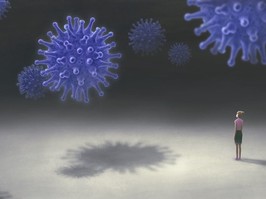coronavirus
coronavirus refers to a family of viruses that can cause illnesses ranging from the common cold to more severe diseases such as middle east respiratory syndrome (mers), severe acute respiratory syndrome (sars), and the novel coronavirus disease (covid-19). these viruses are zoonotic, meaning they can be transmitted between animals and humans.
covid-19, caused by the novel coronavirus sars-cov-2, first identified in late 2019, led to a global pandemic. it is characterized by respiratory symptoms ranging from mild cold-like symptoms to severe pneumonia, leading to significant mortality, particularly among older adults and those with underlying health conditions.
symptoms of covid-19 include fever, cough, shortness of breath, fatigue, loss of taste or smell, and in severe cases, difficulty breathing. the virus spreads primarily through respiratory droplets from coughs or sneezes.
diagnosis of covid-19 is primarily through polymerase chain reaction (pcr) testing, which detects the presence of viral rna.
prevention strategies include frequent hand washing, wearing masks, maintaining social distancing, and getting vaccinated. various vaccines have been developed and deployed globally, offering significant protection against covid-19.
treatment for covid-19 varies depending on the severity of the symptoms. mild cases may only require self-care and isolation to prevent spread, while severe cases may require hospitalization and supportive care, such as oxygen therapy or mechanical ventilation.
the coronavirus pandemic has led to extensive research efforts to understand the virus, develop effective treatments, and manage the public health crisis. these efforts continue as the virus evolves and new variants emerge.























